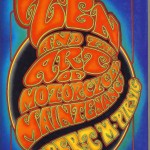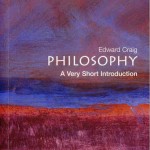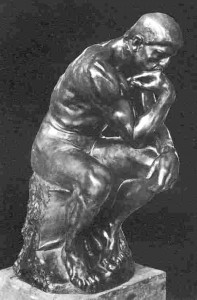Philosophy is often regarded as impractical, something separate from “real life”—whatever that might be!
Actually, as author Edward Craig writes in the interesting book Philosophy – a very short introduction (Oxford, 2002): “In fact philosophy is extremely hard to avoid, even with conscious effort.”
Craig makes this claim because, as he writes, we are all to some extent philosophers. Anyone who asks questions about values, about who or what we as humans are, about life and what it means or even if it means anything, is actually doing philosophy. And most of us ask such questions.
When a child asks us “Why?” we are being challenged to answer a philosophical question. And we all know that children are incessant askers of that question.
The relevance of philosophy to our world, to the harried, hurried world of business, of getting on or getting by, is that it helps us to think critically, consciously, about decisions and choices we make.
Without doubt the pace of modern life requires of us to make decisions very rapidly, sometimes we are even encouraged not to think too much, just to act.
Even when we have to do that, when we have to just go on and do without much prior thought, we can begin to improve our decision making skills by some thought after the event—how did that go? What are the outcomes of those actions? How can I do it differently next time to achieve a better outcome?
As soon as we do this kind of thinking we are practicing philosophy. And our decision making is improved by that practice.
While the formal study of philosophy, although it could be helpful, is not necessary, some reading that is challenging beyond simple “escapist” stuff is definitely beneficial. The brain, after all, is like a muscle—it becomes better with use.
Engaging with people is also helpful—and the more the engagement becomes interesting and useful the more we have exercised the grey matter. Like any skill, the skill of philosophy is improved with practice.
So, while sitting aloof in our own space thoughtfully stroking our beards might be for some an attractive escape from the pressures of life, the real philosophy is an engagement with life, with the people and activities around us.
Books on philosophy
Here are some suggestions of books that might help us in such engagement—and these are just some suggestions of books that I have found helpful myself:
Firstly an enjoyable read that tackles questions of values and quality is the classic from 1974 by Robert M. Pirsig: Zen and the Art of  Motorcycle Maintenance. Don’t be put off by the title – as Pirsig himself noted, it’s not about Zen and not much about motorcycle maintenance either!
Motorcycle Maintenance. Don’t be put off by the title – as Pirsig himself noted, it’s not about Zen and not much about motorcycle maintenance either!
 The Oxford Very Short Introduction I mentioned at the start by Edward Craig is another fun, yet deep, read. Absolutely worth buying if you can find a copy.
The Oxford Very Short Introduction I mentioned at the start by Edward Craig is another fun, yet deep, read. Absolutely worth buying if you can find a copy.
Then there are the books by Christopher Phillips, The Socrates Cafe and Six Questions of Socrates. These are excellent books showing the practical relevance of philosophy to modern life in interesting, non-academic ways. Outstanding reads, both of them.
Finally any books by A.C. Grayling are worth looking at, though as a start I would suggest the non-academic works like The Meaning of Things and The Reason of Things (these were published in the US under the titles Meditations for the Humanist and Life, Sex and Ideas respectively).
And, if one wanted to go further, books by Albert Camus, Erich Fromm, Stephen R. Covey, and others can provide further mental stimulation and encouragement.
Philosophy is about life, and about living it to the full with conscious involvement and commitment.


[…] is extremely hard to avoid, even with conscious effort.” Craig makes this claim because, a… Tony McGregor» Books Filed Under: NewsFeed Tagged With: connection, inescapable, life—an, […]